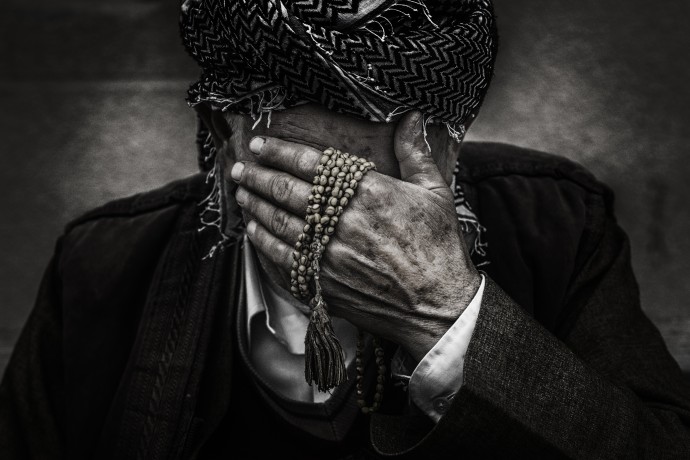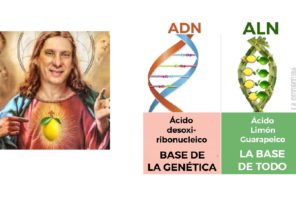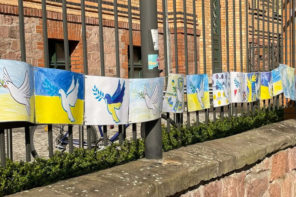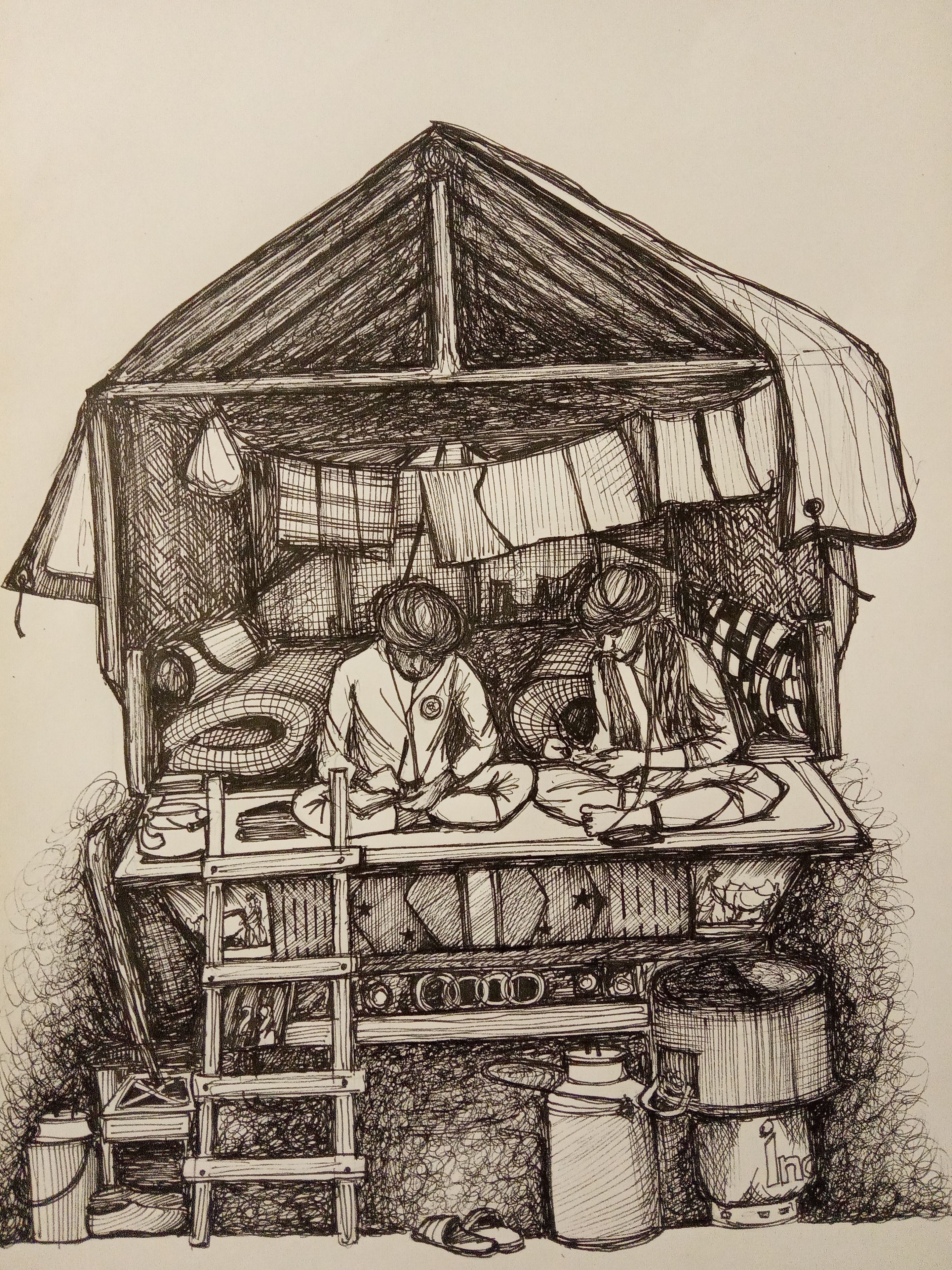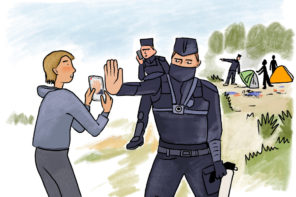The two series of terrorist attacks that hit Paris this year, have given rise to a series of debates and mutual accusations about grief, identity, and double standards. I do not need to recount the details which are known well enough: the murderous acts committed against the Charlie Hebdo magazine and a kosher supermarket in January, and against several sites of leisure in November, gave rise to a strong and widespread sense of solidarity and identification, first with Charlie, then with Paris. In many cases, that sense of identification has come along with expressions in fear and hatred towards Muslim minorities, migrants and refugees in Europe. It has also been accompanied by an expansion in policing and surveillance, and a more visible French engagement in the Syrian civil war.
All this has, in turn, given rise to a critical counter-discourse that takes issue with the hypocrisy and double standards involved: Why is an attack against French civilians an attack on humanity that calls for a strong identification, while an attack against, for example, Lebanese civilians does not give rise to such strong sentiment of identification? Why mourn Paris but not Beirut? In November 2015, many people in fact did seek to extend their solidarity to Beirut and other places that had suffered similar attacks by militants of the so-called Islamic State. But the list of terrible crimes quickly becomes too long for a social media post. There had been no comparable wave of grief and sympathy a month and half earlier when a missile probably launched by Saudi Arabia killed 131 guests of a wedding party in Yemen. (The Guardian 2015)
But when we express such a critique of double standards, do we really care about those killed in similar and worse acts of violence in so many places around the world? Are we really learning to feel the same sense of solidarity, grief, and fear?
Or are we just trying to protect ourselves emotionally from the unsettling horror of the acts of violence that come close to us? (And doing so, perhaps also to protect the comfort of our critical stances?) What would be necessary for me to truly, instinctively feel the same sense of horror and grief for the murdered guests of a Yemeni wedding that I feel for the murdered café customers and music fans of Paris?
After the Charlie Hebdo killings, a peculiar Euro-centric double standard became very visible when the shock about a mass murder in cold blood became mixed with a defence of free speech and an identification with France. In the immediate aftermath of Charlie Hebdo, I remember a German politician on the radio speaking about “our universal values” that needed to be defended. For anybody trained in logic, the paradox of “our universal values” is evident: if they are our values, then they are specific to us, and not universal. If they are universal, then they are not anybody’s own in particular. But moral reasoning (or what anthropologists have recently come to theorise as „ethics“) does not need to be in line with logic in the strong sense. Not free speech as such, but “our” free speech was at stake – but it was to be defended as a universal value.
The sense that “our” values are universal and that an attack on “us” is an attack on humanity (this was stated so by another German politician in November 2015), is a good case of how double standards work: they merge a commitment to general moral truths and values (that is, my commitment to the idea that a certain moral truth and value to which I hold is general, and my commitment to live accordingly) with the inherently partisan and particular nature of solidarity and identity. They also include a good measure of Orwellian double-think, that is, the trained ability to not draw connections, to hold opposite views, and to shift between reflection and oblivion.

Picture by Honest Reporting, CC BY-SA 2.0
But this is of course not an exclusive privilege of the Euro-Franco-American West. If you watch the news on Al-Jazeera Arabic (which has a different staff and a very different editorial policy than Al-Jazeera English), you will find that Muslims are constantly under attack everywhere in the world – Sunni Muslims, to be more specific. Events where Muslims are the attackers, or conflicts that do not translate into the logic of Muslims and others, do not get the same attention. This is not fabrication – the news are generally well documented. It is a matter of emphasis, of what the editorial policy and the anticipated audience think of as important, which crimes count as crimes against humanity, and which crimes are not quite as important.
Also in the West, the double standard is not necessarily one that reproduces a Euro-centrist imperialist sense of supremacy towards other nations. I, for example, have a left-leaning double standard that expresses itself in different emotional reactions to crimes committed by different parties. After the of Charlie Hebdo and the November attacks in Paris, I was angered, frightened, and sought for ways to react that would not reproduce the new nationalist hatred for Muslims in Europe. I put intellectual and emotional energy into understanding the specific social causes of Islamist militancy in order not to let my anger turn into a racist hatred. In the aftermath of the terrorist attacks in Oslo in 2011, my reaction was different. When it turned out that the attacks were committed by the right wing white supremacist Anders Breivik, I felt a sense of relief.
This was a mass murderer who fit to the way I understood the world; an enemy I could feel free rejecting and hating. I did not feel the need to distinguish between wicked right-wing militancy on the one hand, and ordinary, decent ethno-nationalists on the other hand, who hope to live a life in peace while maintaining their cultural specificity and their ownership of their homelands.
Our values may not be universal, but double standards do seem to be a general feature of morality. And when we accuse others of double standards, this may perfectly well be also a way to reinforce and protect double standards of our own. And yet this alliance between morality and solidarity would not be a problem if it weren’t for the flip side of solidarity: enmity. We can be honestly concerned for the right and good, and at the same time willing to defeat and destroy those who threaten to deprive us of our rights and goods.
This is a feature of morality and ethics that has troubled me for a while already. Many of the greatest crimes of our current time and recent history have been committed for the sake of good causes. And I do not mean just that good causes have been merely a veil for cynical, wicked acts (of course, this often is the case, too). I mean that good causes have indeed motivated and structured terrible crimes. We would be seriously mistaken to think of the militants of the Islamic State as perverted, inhuman, or crazy. Jihad is an ethical effort aimed towards lofty moral ends. Equally, I think that wars in which United States, France and others are involved in the Middle East can never be understood as simply a cynical striving for power. Their and others’ acts of murder are always also moral acts aiming to right wrongs committed by others, and to establish a true, positive moral order.
This understanding of morality and ethics as a potential source of evil is partly rooted in my own upbringing. I grew up as a communist in Finland, a capitalist country that was neutral in the Cold War, had good relations with the Soviet Union, and a sizeable communist party. As a child and teenager, I went every summer to the summer camps of the Democratic Pioneers. It was great. I found good friends, I learned the skills of surviving in the nature, I had my first kiss, and I was trained to understand the world as a historical dialectic of relations of production. This was a moral education (or ethical cultivation, as anthropologists would put it) as much as it was a political one, an education to make one’s own the values of international solidarity, equality and freedom, class consciousness, and revolutionary struggle. Until today, I think highly of most of these values.
But this movement to which I once belonged to, and which I still in a way feel at home in, committed the most terrible genocides of the 20th century. And not just once, but repeatedly. In Russia, in China, in Cambodia, and in many other places.
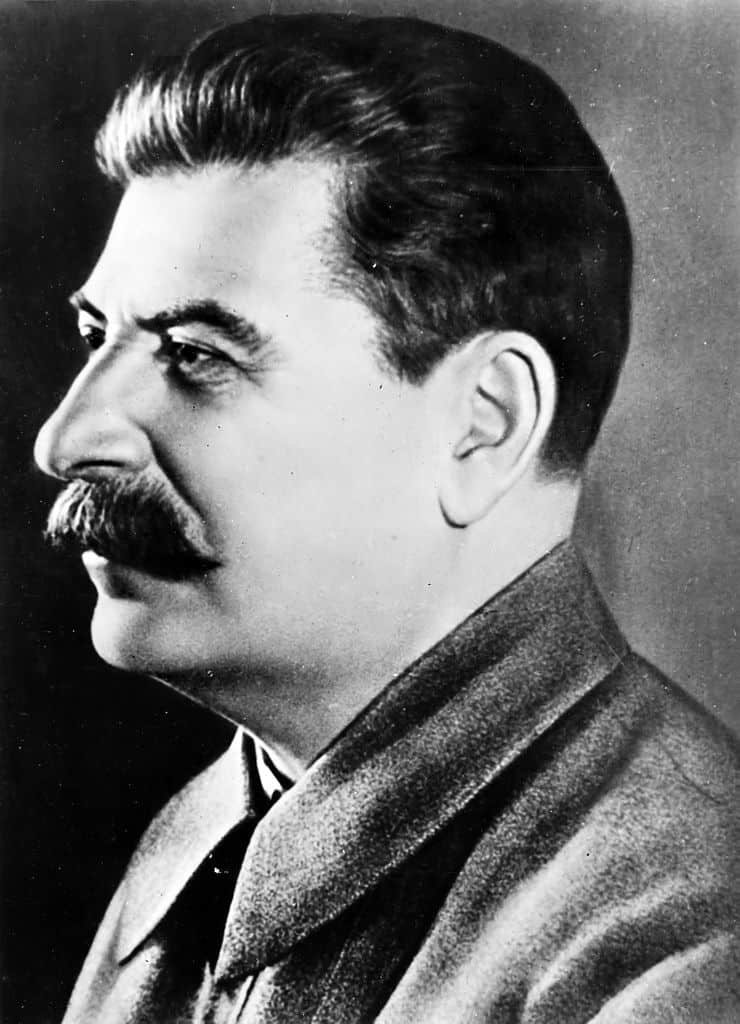
What I mean is the moment when we, to realise the right and good, do what we would never accept from others. Or, to put it in less relativist terms: when we intentionally and systematically cause suffering and destroy life.
As an anthropologist working in Egypt, this is something that I had to witness quite frequently in the recent years.
There was one really interesting debate about Charlie Hebdo that did not take place in the European public sphere. It has taken place in other parts of the world though, for example in Egypt: Are such acts of violence right and legitimate or not? Is it right and good, or not, to kill almost the entire staff of a satire magazine that repeatedly offends values and persons that are sacred and highly sensitive for you? Is it OK, or not, to try to kill as many civilians as possible to hurt a country that wages a war against people you support and identify with? (Although of course there is a debate in European countries as to whether war and surveillance are the best way to reply to a the challenge and threat posed by jihadist militants. That debate does bear many similarities.)
In different nuances, some said “yes they had it coming, and now they learned a lesson,” others said “no, that is not acceptable”, many said “maybe that is not acceptable but look at what they are doing in Palestine”, and yet others escaped to the comfort of conspiracy theories that relieved them from facing the moral discomfort that somebody would do something they could not accept for the sake of something they dearly believed in. None of this is surprising, and we find structurally similar reactions to other acts of violence in other parts of the world. The more disturbing part was how the opinions shifted depending on who was killing whom.
Some of those who, in regard to Charlie Hebdoo, would say that it was not acceptable to kill people because they hurt what was dear and holy to you, had only recently supported the massacring of the supporters of Muslim Brotherhood and other Islamists in the wake of Egypt’s 2013 military coup (or counter-revolution as I like to call it). That counter-revolution relied on bloodshed and dehumanisation of its enemies to a terrible extent – and it continues to do so also today. A key claim to legitimise the killing of the supporters of the deposed president was that they were terrorists and traitors to the nation. This did not mean that they would have actually committed material acts of terrorism. Their rejection of the military leadership’s version of nationalism made them terrorists. They were hurting and threatening what was dear and holy to a great many Egyptians who had grown up with a militant nationalist faith in the wake of the revolution of the Free Officers 60 years earlier.
Many of my friends were among those who – to various degrees – bought into the narrative of nationalist struggle against terrorism. Some changed their mind sooner or later. Others have remained steadfast until today. I have tried to remain in talking terms with them. Their support of killing their political enemies was ethical in the sense in which anthropology today speaks about ethics: the reflection about the relationship of values and actions, and the cultivation of those values as attitudes.
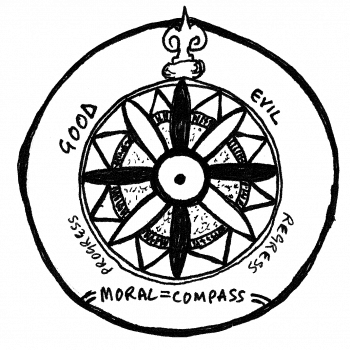
Picture by Paul Downey, CC BY 2.0
“Ethics” is commonly associated with being good, learning to do the right thing, and being responsible or responsive towards others. But ethics is not only about being a certain kind of person, living together in a community, and being open and responsive also towards strangers. (But I do agree with Michael Lambek (2015) that the world would be a better place if it were). Ethics is is also about conflict and enmity. And when people argue that the good, right and responsible thing to do is to kill their enemies, then ethics reveals a darker side of human wickedness that needs to be taken seriously.
To live by a moral stance, one needs to engage in reflection—alone or, more typically, with others—about what is right, what is important, and what is to be done. One needs to cultivate it in acts and attitudes. But such moral reflection also requires moral oblivion. To have faith in something, one must be sceptical about things that might trouble that faith. Even better, one should not think about such things at all. One has to develop sensibilities and attitudes that make one sarcastic, condescending, or angry about acts and claims that could constitute a competing sense of right and good. One has to use double standards without noticing that one is doing so. In short, one has to make oneself immune towards views and ways of living that would trouble the sense of right and good which one has worked hard to make one’s own.
At no other time is moral oblivion as crucial as in the time of a righteous struggle. This, if any, is the moment of clear, firm stances, a moment of action, a moment of purity. It is a moment when it is necessary to not see things from your enemy’s point of view, and to not question one’s own position, but instead to go with the flow of righteous anger. Purity is a dirty business.1
In regard to Egypt’s counter-revolution, I came to the conclusion that sometimes confusion and weakness are a the best protection against the potential propensity to evil of moral aims (and especially of moral purity).
“In a time when so much emotional and ethical work is invested in creating and maintaining enmity and purity, weakness may also become a virtue. Being a coward can rescue one from the destructive stand-off of fearless confrontation. A sense of bewilderment and confusion can become an antithesis to fiercely cultivated determination and oblivion.”
Of course there is cowardice that is negative, and confusion that is destructive. But in a world that is crowded by mutually exclusive ideas of purity, there is also a constructive sense of confusion that results from the failure to maintain lines of purity and enmity, that forces one to look into the eyes of one’s enemy and see oneself. It is not a confusion that results in a happy idealist recognition of “them” to be sympathetic, nice people just like “us”. Such recognition would in most cases be a misrecognition of both parties anyway. To reach peace, one must first recognise the fact of enmity. Rather, the path towards peace may be grounded in the realisation that “we” are just as wicked and violent as “them”, and that it should not stay that way.”
Such recognition might stop us from trying to destroy the lives of our enemies. But it would not make an end to enmity as one of the ways in which humans relate to each other. It would not stop us from being partial and partisan in our stances. It would not stop us from having double standards. In fact, some double standards are good to have.
I have been recently involved in a debate with fellow anthropologists about to what degree we need to recognise the way a specific group of people strives for ethical perfection as an ontology in its own right, and to what degree we should problematise such strivings because of their unsettling consequences (Fadil and Fernando 2015; Schielke 2015) The debate concerned Salafi Muslims in particular, but I think the same questions need be asked about Finnish communists, European nationalists and Egyptian militarists as well.
A blunt way to summarise the debate would be to ask: whose double standards should we recognise, and whose double standards should we challenge? When one has the comfort of a critical distance, the answer seems easy: those double standards that have the military and economic power to impose themselves on others, need to be challenged. And those double standards that are held by people in a position of weakness and marginalisation, need to be taken seriously as an ontology in its own right. But those who are powerful in one place may be marginalised in another, and vice versa. There can be no general answer to the question, because the emotional urgency of the question and the need to pose it in a certain way already depends on our positionality.
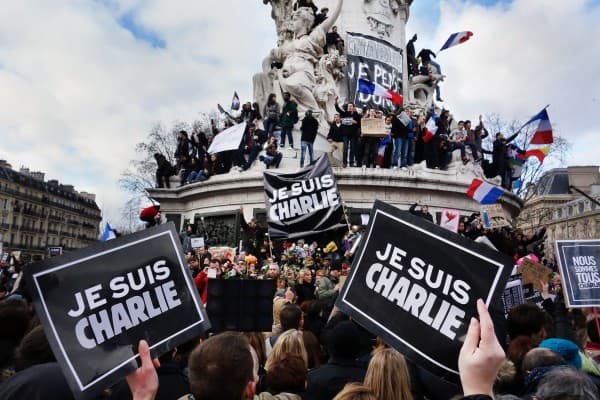
Photo by Oliver Ortelpa via Wikimedia Commons, CC BY 2.0
This brings me back to the title of my contribution: In defence of our universal double standards. Last spring when people started posting „Je suis Charlie“ on social media, I did not. I felt uncomfortable about the identitarian drive that “being Charlie“ included. A handful of friends of mine from the Netherlands who are cartoonists, all “were Charlie”. If they had not been, I would have been angry at them. For a cartoonist, not “being Charlie” would have shown lack of elementary professional solidarity.
Without our ability to feel strongly about those wrongs that come close to us, we would probably be altogether more cynical beings. Families would not hold together in spite of internal conflicts. There would be no sense of solidarity beyond vague declarations of principles. Without the energy of some people to feel strongly for a specific group of people or a specific cause, a lot of wrongs might pass altogether unnoticed. But this also means that the struggle for a better world is carried out by people who care more for some people than they do for others.
In his book on secularism and law in Egypt, Hussein Agrama (2012: 193) cites an Islamist lawyer working for political prisoners whose political and religious commitment he shares. The lawyer argued that liberal-leftist human rights activists were hypocrites because actually caring for everybody was not humanely possible: serious action requires such energy and determination that you can only devote it to people and causes you truly believe in. In her article about the work of maintaining the borders of Europe, Dace Dzenovska (2014) notes how Latvian border guards extended a sense of solidarity towards a Georgian who had arrived without valid papers because he was „one of us“. But the border guards would not extend such a gesture towards Somali refugees.
In that sense, double standards are essentially ambiguous. It is good to have them because they give us the energy and focus to care about some wrongs. They are dangerous, for one thing because they make it very easy for us not to care about other wrongs – especially wrongs committed by “us”. Moreover – and I deem this the most dangerous part – they make it compelling to draw borders that protect us from the confusion about who “we” and “they” are.
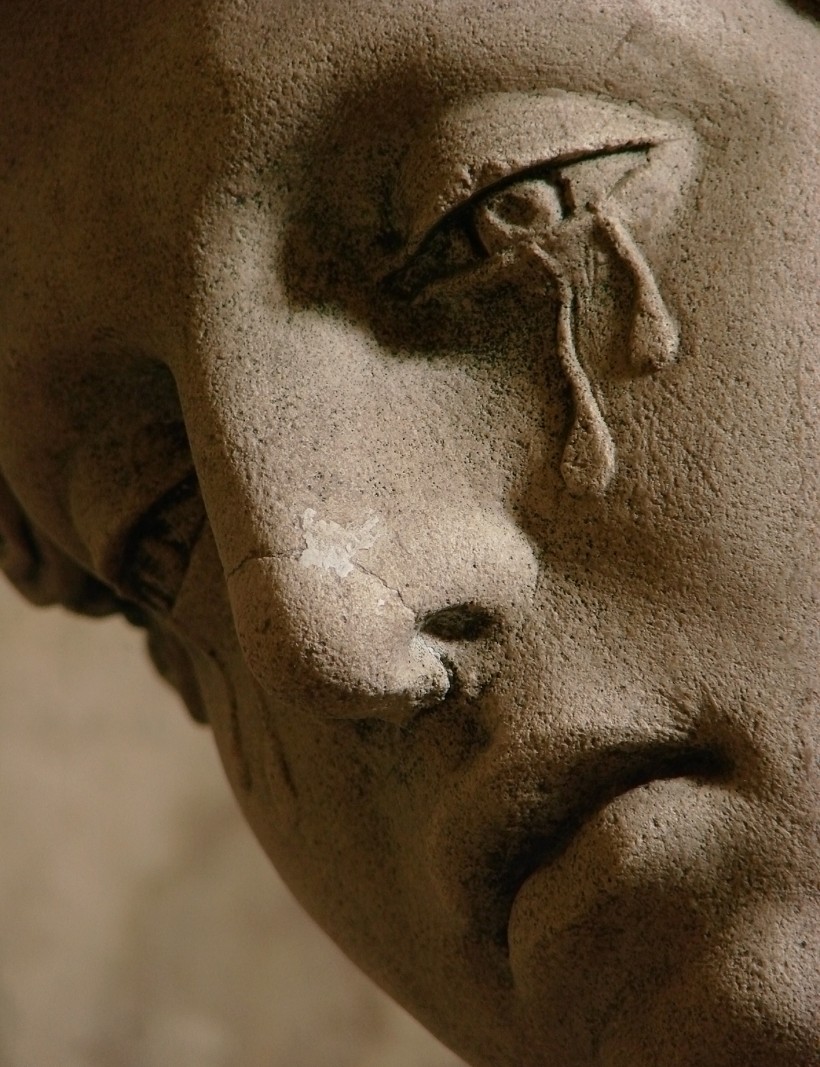
Entombment of Christ, 1672. Photo from Wikimedia Commons, CC BY 3.0
The deeper problem, therefore, lies neither in the inconsistency of our moral stances nor in the oblivion we entertain towards moral trouble that does not fit to our sense of right and wrong. As long as we are able to be moved, troubled and confused, we can adjust and learn, and sometimes we can even see ourselves from the point of view of the enemy. Michael Lambek (2015), focussing not on moments of enmity but on moments of practical wisdom that enable our movement between incommensurable traditions, has recently provided a more nuanced theory of the hermeneutics of such encounters.
My emphasis on confusion as something morally valuable could be taken as a specific case of such hermeneutics.
The deeper problem lies with processes of confrontation and ethical cultivation that thrive on purity and clear, absolute borders. In his work on ethnic violence in Pakistan in early 1990’s Oskar Verkaaik (2004) has shown how ideas of purity and absolute divisions are heightened and confirmed as true in moments of actual violence. In most situations of ordinary life, we may hold to such ideas of purity while at the same time they are constantly compromised in practice – without losing their validity for us. To act them out in full requires breaking the many morally unsound compromises that contribute to peace. To continue acting them out requires struggle against all the forces that would compromise them – including the force of our ability to be confused. Constantly living out ideals of purity and clear-cut divisions between us and them, good and evil, requires an ongoing struggle. Often, that struggle takes the form of war.
Right now, it seems that the government of France is committed to do exactly that: fighting a war that will confirm a devastating truth. It is the same war that the jihadists with their apocalyptic aspirations want to fight. This is a war which, I fear, will provide many more occasions to create absolute oppositions, and to destroy even more of the grey zones of impurity where our cultivated oblivion may be unsettled and where peace may be possible.
Acknowledgements
This essay is based on a presentation at the roundtable “Anthropological explorations of the ethics and aesthetics of violence in the aftermath of the Charlie Hebdo attacks” at the AAA annual meeting in Denver, Colorado on 19 November 2015. My thanks are due to the organisers and participants of the roundtable: Seçil Dağtaş, Sertaç Sehlikoğlu, Elayne Oliphant, Jennifer Selby, and Ivan Davidson Kalmar.
References
Agrama, Hussein Ali. 2012. Questioning Secularism: Islam, Sovereignty, and the Rule of Law in Modern Egypt. Chicago and London: University of Chicago Press.
Dzenovska, Dace. 2014. “Bordering encounters, sociality and distribution of the ability to live a ‘normal life’”. Social Anthropology 22(3): 271–287.
Fadil, Nadia and Mayanthi Fernando. 2015. “Rediscovering the ‘everyday’ Muslim: Notes on an anthropological divide.” HAU: Journal of Ethnographic Theory 5(2):
The Guardian. 2015. 29 September: “Missile attack on Yemen wedding kills 131.”
Lambek, Michael. 2015. “The hermeneutics of ethical encounters: Between traditions and practice.” HAU: Journal of Ethnographic Theory 5 (2): 227–250.
Schielke, Samuli. 2014. “There will be blood: Expecting violence in Egypt, 2011-2013.” ZMO Working Papers 11.
Schielke, Samuli. 2015. “Living with unresolvable differences: Reply to Fadil and Fernando.” HAU: Journal for Ethnographic Theory vol. 5(2)
Verkaaik, Oskar. 2004. Migrants and Militants: Fun and Urban Violence in Pakistan. Princeton: Princeton University Press.

